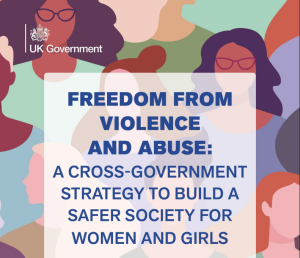On January 27, BBC North-East released the results of a new survey showing that in the five years since Stalking Protection Orders (SPOs) were introduced, only a tiny proportion of stalking cases in their region resulted in an SPO being issued.*
Alice’s parents Clive and Sue and the Alice Ruggles Trust were strongly involved in campaigning for the Stalking Protection Bill in 2018, which became law in 2019, with the introduction of SPOs following in January 2020.
Responding to the BBC’s figures in interviews for Radio Newcastle and their Look North news programme, Clive said he was “getting increasingly exasperated” that SPOs were so little used five years after being introduced. “This is what we fought for”, he added. “SPOs provide a hugely important means of restraining perpetrators and protecting victims. They have to be used and have to be used properly.”
Why SPOs are important
- They are civil orders designed to be put in place fast. Police can apply for interim SPOs s soon as a victim reports to them, without waiting for a conviction.
- As well as restrictions such as preventing the perpetrator going to certain places (which could be enforced, for example, using GPS tagging) they can include positive requirements on the perpetrator such as attending intervention programmes or compelling them to provide police with access to phones and social media accounts.
- SPOs do not have to be applied for by the victim, thus avoiding adding to the pressures upon them at a time of great distress. They are also free of charge to the victim.
- Breaching them is a criminal offence. Breaches indicate that a high level of risk to the victim has already been reached and a require prompt action such as arrest in order to prevent further escalation, in the worst cases to serious violence and murder.
So what is the problem?
The police response to the National Stalking Consortium’s super-complaint on the police response to stalking details a number of issues that are impeding the implementation SPOs in practice, including
- investigating officers being unaware of their existence or lacking training in using them;
- a reluctance to use SPOs and preference for “known” orders such as non-molestation orders and DVPOs (which are not an option anyway in the many stalking cases that are not “domestic”); and
- legal complications making the application process long and complex.
And what can be done about it?
The super-complaint response also offers several recommendations for improvement, including
- The introduction of “stalking protection notices” than can be approved by a senior police officer before an application is approved for an interim SPO (to avoid having to go to a magistrate).
- Provision for courts to issue an SPO upon conviction (to stop people stalking from prison).
The response also gives a strict timescale for the implementation of its recommendations. All of them should have been actioned by 27 March 2025.
Given the government’s focus on protecting stalking victims as one the key issues in its mission to reduce VAWG by 50% within a decade, the Alice Ruggles Trust will be doing everything it can to help ensure the super-complaint recommendations are enacted.
SPOs must be better used and victims must be better protected.

Clive speaking on BBC’s Look North on January 27
*The graph at the top shows interim (light) and full (dark) SPOs granted per 10,000 stalking offences in various police forces in England and Wales in the year to 31 March 2023 (from the super-complaint response, p. 94). The BBC’s figures show little general improvement in the years since




